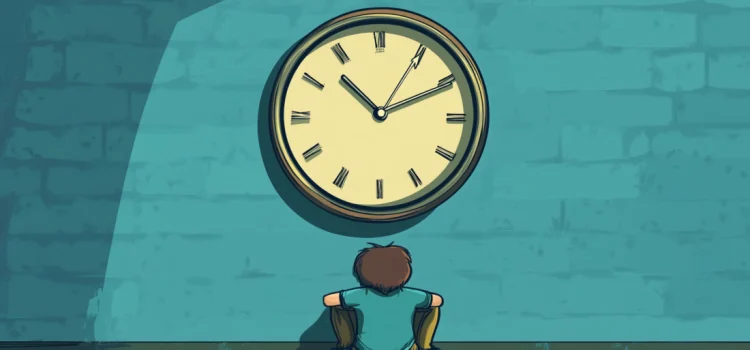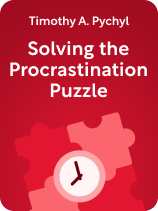

This article is an excerpt from the Shortform book guide to "Solving the Procrastination Puzzle" by Timothy A. Pychyl. Shortform has the world's best summaries and analyses of books you should be reading.
Like this article? Sign up for a free trial here.
Why is procrastination bad? How does procrastination affect your physical health?
Timothy A. Pychyl contends it’s important to be aware of the specific ways your procrastination habit works against you. After all, procrastination keeps you from putting your limited time to the best possible use, and this can have a cascade of consequences.
Below, we’ll consider three ways that procrastination can sabotage you.
1. It Chips Away at Your Ability to Get Things Done
One of the reasons why procrastination is bad is that it hinders your ability to do and be your best. Pychyl warns that when you give in to procrastination and delay working on the tasks that your partner, your boss, or your friends are depending on you to complete, you don’t put your best effort into fulfilling your obligations. He warns that it’s easy to disappoint yourself or somebody else and regret it later.
Pychyl argues that if you aren’t able to find the time to do the things you said you would, procrastination can undermine your relationships with the people you care about most. It can also make you regret missing out on things you always wanted to do but never got around to doing, like taking the trip you and your partner have always talked about.
When you keep putting a task off, you might find yourself in the final stretch before the deadline with little time left to do a good job. Pychyl explains that procrastination often reduces the quality of the work you ultimately do. This can feel like an acceptable trade-off because it seems to lower the stakes, too. (If you do a good job, you manage to perform well even when working at the last minute. And if you do a poor job, you can just attribute it to the lack of time left to complete the task, and move on.) But no matter how you justify it to yourself, procrastination still keeps you from doing your best work.
2. It Results in More Negative Feelings, Not Fewer
You might recall from the previous section that the desire to avoid negative emotions often drives procrastination. Pychyl warns that this rarely works out the way we expect it to: Procrastination doesn’t really make you feel happier, even in the moment. He explains that when you know you should be working on a task you’ve delayed, you probably feel mixed emotions about it. One of the most common is guilt (which you feel when you know you’re doing something that conflicts with your sense of what’s right or wrong for you).
Additionally, procrastination causes you to feel an array of negative emotions later, when you have to deal with the consequences. Pychyl contends that deferring a task often results in more negative emotions than you’d experience if you’d just gotten started on the task, no matter how unpleasant it is. For example, as many undergraduates learn, if you wait to write a paper until the night before it’s due, you’ll spend the night feeling anxious, harried, or frantic—and the next day feeling sleep-deprived and regretful.
3. It Takes a Toll on Your Physical Health
Research also shows that procrastination can have a harmful effect on your health and well-being. How is that possible? Pychyl explains that first of all, procrastination causes stress. (Just think of how stressful it is to write a paper the night before it’s due!) But stress isn’t just a feeling: Stress is a psychological, emotional, and physical reaction to the challenges you experience. Even when you create a stressful situation yourself by putting off until later something you should do now, that stress can have an impact on your body, and sometimes that impact can harm your health.
According to Pychyl, another reason that procrastination takes a toll on your physical health is that while putting off a few unpleasant tasks can seem harmless, procrastination isn’t so innocuous when it involves health-related tasks. Skipping gym sessions, delaying the start date for healthier eating habits, pushing back your bedtime, failing to find the time for doctor’s appointments, and delaying recommended health screenings all keep you from taking care of yourself to the best of your ability. Your health can suffer in the long run: After all, your blood pressure doesn’t care that you always intend to exercise more or that you have a plan to start a new diet next month.

———End of Preview———
Like what you just read? Read the rest of the world's best book summary and analysis of Timothy A. Pychyl's "Solving the Procrastination Puzzle" at Shortform.
Here's what you'll find in our full Solving the Procrastination Puzzle summary:
- The real reason why you procrastinate
- How procrastination undermines your ability to live a happy, healthy life
- Practical advice for changing your relationship with your most dreaded tasks






